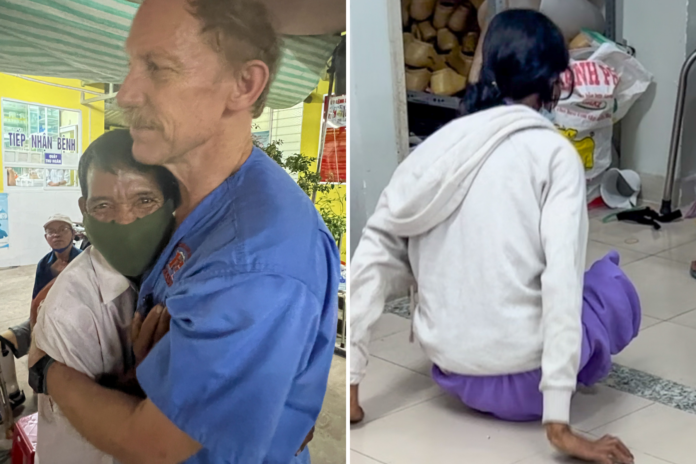
My dad was a “fixer.” When the transmission went out on our 1964 Rambler, he fixed it with little more than a screwdriver and a pair of pliers. When the toaster stopped toasting, he took it apart, found the problem and fixed it. When the water pipe broke late on a cold January night, he dug down through the frozen Hoosier soil, discovered the leak and fixed it. He would take on a problem and find a way to fix it.
I was his sidekick on these fixing adventures, and so, I grew up believing that the world was “fixable.” Things, all kinds of things — cars, toasters, water pipes — would eventually break, but with persistence and elbow grease, they could all be fixed.
That confident childhood naiveté has, over the years, evolved into a more measured view of reality. Some things break that cannot be fixed. Sadly, it is often those things that are most dear to us that are not fixable.
I was reminded of this in Vietnam this past summer. Our Mercer On Mission team was fitting amputees with prosthetic legs and hands in the city of Ben Tre. At the end of one very long day, a husband brought his wife to our clinic. He carried her on his back. She had lost most of her right leg in an accident and couldn’t walk. She moved on the floor in an animal-like scooting motion. The woman wore, undisguised, the marks of her age and station. Her face was gaunt and weathered. Her arthritic hands were thin and twisted. Her hair and clothes were unkempt. Toothless and wordless, she made indiscernible grunting sounds in an attempt to communicate. This broken woman had lost so much of what seems to make us human. And yet, here she came to us on the back of her smiling husband.
Several of us pulled off of our current patients to see if we could help. We did all the measurements, constructed the appropriate socket and assembled prosthetic components. She was ready to walk. But, she couldn’t. Her muscles were too weak. Two of us, one under each arm, lifted her on her new prosthesis. Her husband stood in front, coaxing her forward. But, she couldn’t walk. We tried and tried to find a way to help her walk, even to take one step. It was not to be. Eventually, we realized that we couldn’t “fix” this broken woman.
We sent her home with many heartfelt goodbyes. Her husband picked her up and put her on his back like he had done thousands of times before and would do a thousand more. He walked away with a smile, grateful that we had tried to help his wife. I learned later that he carried her like this everywhere he went. Everywhere! This badly broken woman, who gave every appearance of being nothing but a burden, was carried by her husband with an unreasonable gladness that only the purest love could imagine.
I write these words on Sept. 11, 2023, aware that we live in a very broken world, where sometimes even the most basic humanity seems to be missing, amputated. In such a world, I am convinced that it is our highest calling to do all that we can to fix what has been broken, to repair what has been damaged, to heal what has been wounded.
And yet, on this day in particular, I am also soberly reminded that not everything can be fixed, not every wound healed. So, what do we do with all this unfixable brokenness and unhealable woundedness — in the world, in others and in ourselves? We could become bitter with complaining. We could become hostile in resisting. We could drop our hands and walk away in resignation. But, we could also choose another path, the one chosen by this unknown man who I happened to meet one night half a world away. We could carry the brokenness in love as he did. Without complaining, resisting or abandoning, we could decide to hold what is unfixable in love.
To hold brokenness in love is not easy. It surely wasn’t easy for my Vietnamese friend who carried his wife. Broken things and broken people can be quite heavy. To carry them demands great strength, poured out in humility, patience, courage and, of course, love. The only reward is in being a part of the Great Love that still holds the world, and for some, that is enough.
I will never forget my friend’s face. For me, it was the face of God.









